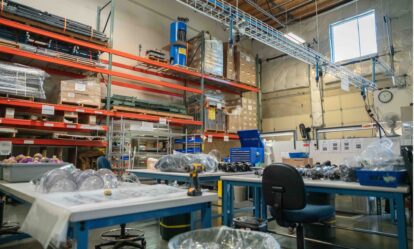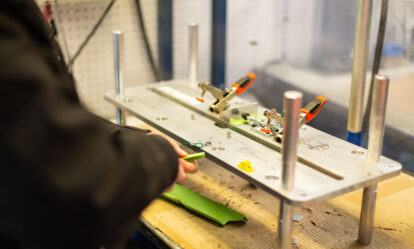by:
Aerospace Quality Management System

Quality management is a critical aspect of the aerospace industry, as it ensures that the products and services provided meet or exceed customer expectations. The aerospace industry is a highly regulated field, and strict quality standards must be met in order to ensure the safety and reliability of aircraft and aerospace components. In this article, we will explore the importance of quality management in the aerospace industry, including the regulations and standards that must be followed, and the techniques and tools used to ensure quality in aerospace manufacturing and maintenance.
The aerospace industry is subject to a number of strict regulations and standards, such as those set by the Federal Aviation Administration (FAA) and the International Air Transport Association (IATA). These regulations and standards cover a wide range of areas, including design and manufacturing, maintenance and inspection, and airworthiness. Compliance with these regulations and standards is essential for ensuring the safety and reliability of aircraft and aerospace components.
Quality Assurance in Aerospace: The Importance of Compliance and Reliability
One of the key principles of quality management in the aerospace industry is the use of a systematic approach to identify and prevent defects. This is achieved through the use of a variety of tools and techniques, such as statistical process control (SPC), design of experiments (DOE), and failure mode and effects analysis (FMEA). These tools allow manufacturers and maintenance organizations to identify potential issues early in the process, before they become a problem.
In addition to these tools, the aerospace industry also employs a number of quality management systems (QMS) to ensure compliance with regulations and standards. The most widely used QMS in the aerospace industry is the International Organization for Standardization (ISO) 9001 standard. This standard provides a framework for quality management, including requirements for a quality management system, quality planning, and continuous improvement.
Another important aspect of quality management in the aerospace industry is the use of inspection and testing to ensure that products and services meet or exceed customer expectations. This includes both in-process and final inspection, as well as non-destructive testing (NDT) techniques such as X-ray, ultrasound, and magnetic particle inspection. These techniques are used to detect defects in aerospace components before they are installed on aircraft, and are critical for ensuring the safety and reliability of the final product.
Achieving Excellence in Aerospace Manufacturing: The Role of Six Sigma, TQM, and Lean Manufacturing
In the aerospace industry, quality management is not just about compliance with regulations and standards, but also about maintaining the highest levels of safety and reliability for the end user. This is why aerospace manufacturers and maintenance organizations employ a number of techniques and tools to ensure quality in the manufacturing process.
One of the most important techniques used in aerospace manufacturing is the use of six sigma methodologies. Six Sigma is a data-driven approach to quality management that focuses on reducing defects and variability in the manufacturing process. By using Six Sigma methodologies, aerospace manufacturers can improve the efficiency and effectiveness of the manufacturing process, leading to improved quality and reliability of the final product.
In addition to six sigma, the aerospace industry also employs other quality management techniques such as Total Quality Management (TQM) and Lean Manufacturing. TQM is a management approach that focuses on continuous improvement and customer satisfaction, while lean manufacturing is an approach that focuses on reducing waste and increasing efficiency in the manufacturing process. Both of these techniques are used to improve the quality and reliability of the final product.




